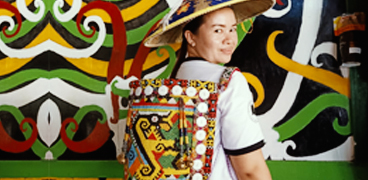
Empowering women and improving their socio-economic status is essential to achieving sustainable development. Only by ensuring equal opportunities between men and women will we get to realize economies that are just and inclusive, allowing us to sustain our environment today for tomorrow’s generations.
We are currently at a time where social, economic, and health problems are made worse by a global pandemic. While we could say these problems impact almost everyone globally, women, especially those living in developing countries, are ones who are more affected due to the longstanding global inequality. So we’re here to make a change.
In line with our commitment to support the UN’s SDG number 1 (no poverty) and number 5 (gender equality), we’re collaborating with Dr. Sjahrir Foundation and Vinto Craft & Ethnic to empower women around our concession areas. This effort has been implemented since 2019 through our Desa Makmur Peduli Api (Integrated Forestry and Farming System) program. And we hope we can give even more meaningful contributions amidst this trying time.
DMPA, for short, is our sustainability initiative which encourages the community to protect the environment and adopt sustainable forest management. Since its inception, we have conducted entrepreneurship workshops across Indonesia, aiming to train 1,000 women by this year. Through the program, participants learn how to utilize available resources, like spices or plants, and turn them into more marketable commodities.
For example, at Mengkiang Village, West Kalimantan, DMPA recently held online workshops that aimed to train women to improve their crafting techniques and market skills. Their products are undoubtedly environmentally-friendly as they are made of organic materials. And, through this program, the local community was also encouraged to protect the environment by practicing sustainable forest products management.
“I personally create various woven products, such as bags and baskets. The main materials are rattan and bamboo. I get them from the surrounding forests,” said Mamy, one of the 19 participants after the workshop.
The 36 years old woman is part of the Muncang Lestari farmers group. Thanks to this program, she and her colleagues can each earn US$270 per month (IDR4 million), which is quite significant for the local standard in this area.
Besides empowering women with technical skills, the workshop aims to give the community extra motivation to stay creative and keep improving their products. “For crafters, there’s no quitting,” said Vinto B Effendi, the owner of Vinto Craft & Ethnic, through the video conference.
Vinto Craft & Ethnic is a creative enterprise with more than 100 workers and many marketing experiences to local and international consumers. So we hope Vinto’s expertise and motivation will boost local businesses’ productivity and improve the communities’ lives.
The online program also involved the crafters in Miau Baru, East Kalimantan. About 20 women participated in the workshops, and they learned many things–from weaving skills to photography techniques to market their products properly. Just like in Mengkiang, they also use natural resources like rattan, bark, and leaves. But this time, they also incorporated beads in their crafts to make them more aesthetically pleasing.
The products range from bracelets, necklaces, keychains, and traditional crafts such as Dayak hats. Weaving has been part of the local community’s heritage for a long time, and we want to help them leverage this opportunity while also sustaining their traditional values.
“We are happy and thankful for the training by APP. We learned so many new things about woven product design so we can create more compelling crafts. This program also helps improve our family income and promote our products to people out there,” said Hetty Apuy, a 45 years old farmer from the village.
Through this program we can continue to encourage women to be more innovative and share new knowledge with more people in Indonesia. And hopefully, women from these villages will be more financially independent and empowered so they and their families could have better opportunities in life.
You can learn more about DMPA by checking our sustainability page and following our social media channels on Facebook, Instagram, and Twitter to get constant updates about this effort. Let’s do our best to create a better future!